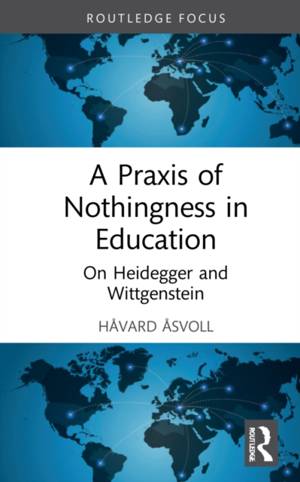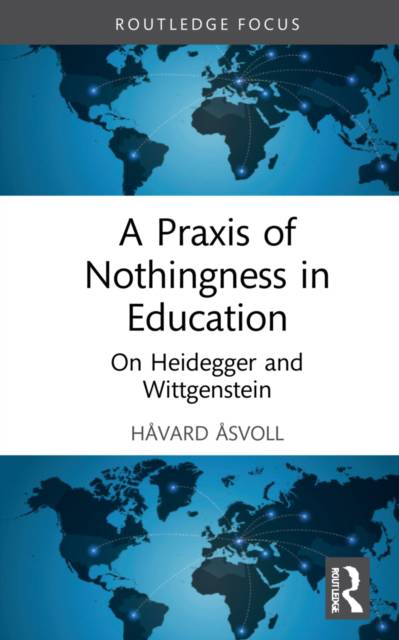
- Afhalen na 1 uur in een winkel met voorraad
- Gratis thuislevering in België vanaf € 30
- Ruim aanbod met 7 miljoen producten
- Afhalen na 1 uur in een winkel met voorraad
- Gratis thuislevering in België vanaf € 30
- Ruim aanbod met 7 miljoen producten
Omschrijving
This book puts forward a "theory of Nothing" and shows how a praxis of "Nothing" can offer new possibilities for educational research and practice. Taking inspiration from Heidegger's and Wittgenstein's philosophy and with regards to phenomenology and language, the book indicates how nothing can be a condition for an educational technology.
The book translates the complex philosophical thinking of Heidegger and Wittgenstein into the realm of education studies, drawing on their perspectives to contribute to an understanding of how nothingness comes into being and how this relates to education. Arguing that nothingness addresses new possibilities for understanding and how we perceive the world and our place in it, the book theorises different aspects that can be included in a theory of Nothing; including indeterminateness, embodiment and how the inexpressible can be made expressible. The book presents vignettes and examples of educational practice and explores how nothing can show up in educational research, theory and practice.
Outlining a unique conceptualisation of nothingness in education, the book will be of great interest to academics, researchers and post-graduate students in the field of educational philosophy and educational theory.
Specificaties
Betrokkenen
- Auteur(s):
- Uitgeverij:
Inhoud
- Aantal bladzijden:
- 106
- Taal:
- Engels
- Reeks:
Eigenschappen
- Productcode (EAN):
- 9781032119380
- Verschijningsdatum:
- 17/12/2021
- Uitvoering:
- Hardcover
- Formaat:
- Genaaid
- Afmetingen:
- 140 mm x 216 mm
- Gewicht:
- 281 g

Alleen bij Standaard Boekhandel
Beoordelingen
We publiceren alleen reviews die voldoen aan de voorwaarden voor reviews. Bekijk onze voorwaarden voor reviews.











